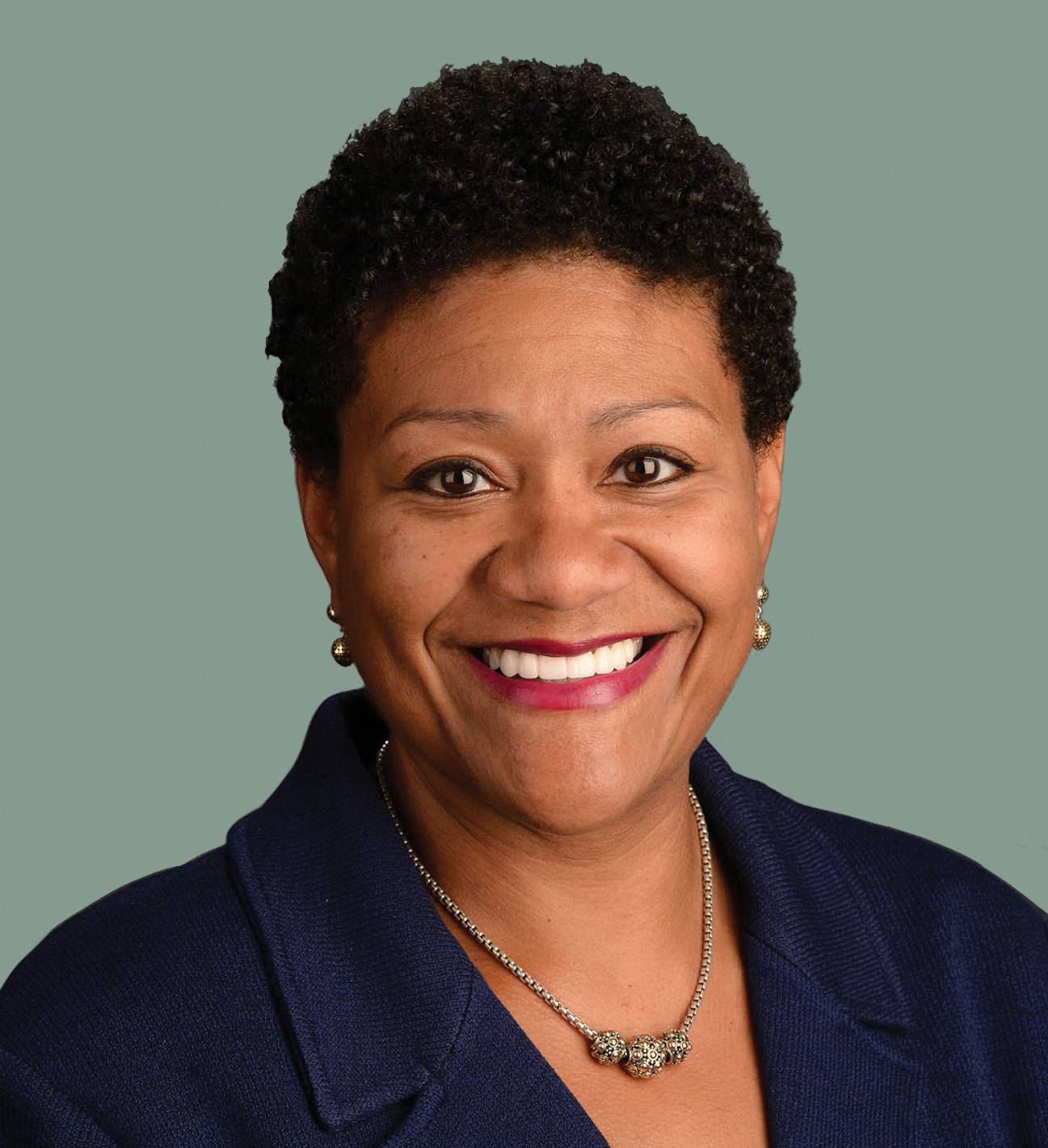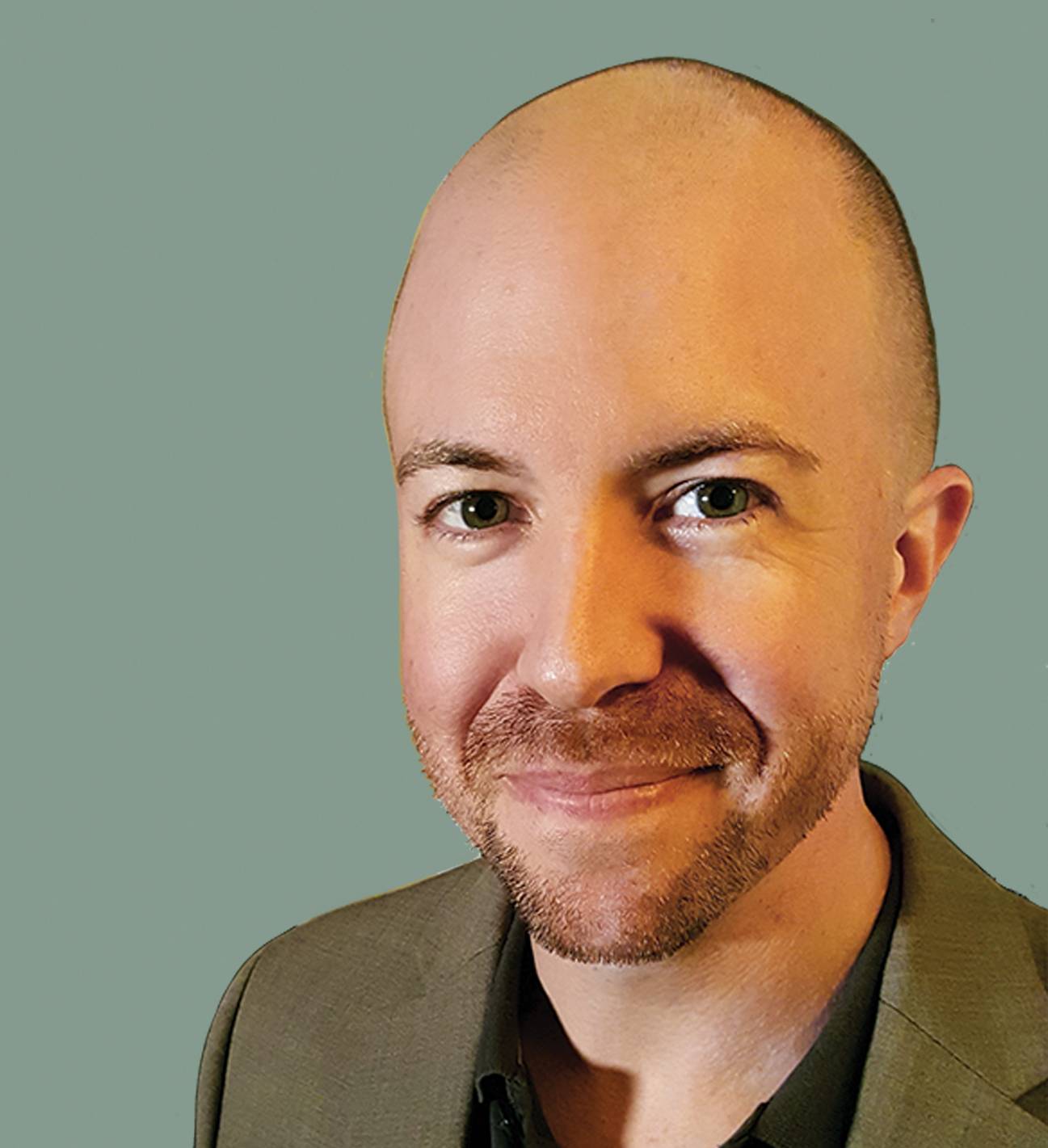Willow Hall Health Profession Profiles
College of Health Professions alumni profiles
An activist and advocate
Felicia Miller has challenged her skills in healthcare industry

Advocating for others comes naturally in Felicia Miller’s family. Her mother was a longtime member of the NAACP; her great-grandmother marched for women’s suffrage and once hosted U.S. Supreme Court justice and civil rights advocate Thurgood Marshall in her home.
Miller, a Texas State graduate who has campaigned for LGBT rights, marriage equality, and HIV funds, is also known for her many years of professional advocacy in the healthcare industry, where she has more than 25 years of leadership experience.
"My mom once said, ‘You know, I always thought you would be an activist for women’s rights and for poor people, but I never dreamed you would be an advocate for people in general,’" Miller says. "I learned from my family that education and activism really do change people."
Miller earned two bachelor’s degrees — in healthcare administration in 1988 and the other in health information management in 1989 — and then went to work managing medical records and cancer research statistics.
Several years later, she noticed disparities among her firm’s employees who wanted to further their careers. "I went to the vice president of human resources and said, ‘People that look like me — female and minority — they’re not getting promotions here, and that’s not in alignment with our mission.’ He challenged me and said, ‘What are you doing about it?’ "
It was a question that launched Miller into human resources. She built a career center and supervised it for the system’s eight hospitals, managing the transfer processes and learning the jobs of every employee at the facilities. After the first year, the company’s internal promotion rate increased by 20 percent. Miller spent the next 10 years of her career as a regional human resources leader.
Miller, 54, has continued her activism in the community, chairing the American Society for Healthcare Human Resources Advocacy Committee and lobbying legislators on the impacts of laws and regulatory issues at the national and state levels.
She hasn’t been forgotten at her alma mater, where she received the Allen Herkimer Distinguished Alumni Award in 2017. At the ceremony, Miller encouraged a group of graduates to be open to challenges and opportunities. "I had at least three different careers and several jobs that I was able to be successful at, based on the education that I received at Texas State," she says. "Based on my successful outcomes people offered me opportunities in other jobs for which I had indirect experience and transferable skills. They knew that I pursued mastery of that body of knowledge and that led to more success."
— Natalie Chandler
More than just words
A speech-language pathologist's training takes her in unexpected directions

When Rachel Wynn first worked as a speech-language pathologist (SLP), she often heard her clients’ well-meaning relatives decline her services. "Mom doesn’t need a speech pathologist; she talks just fine," an elderly patient’s daughter would explain, unaware that SLPs did far more than speech therapy. Wynn titled her first professional blog "Talks Just Fine" as a nod to the variety of ways SLPs help patients.
Today, Wynn (M.S. ’11) has discovered even more applications for her training. She’s coached families on how to interact with relatives with dementia, helped therapists across fields share resources, confronted ethical challenges in her profession, and applied her skills to designing software.
After earning a bachelor’s degree in English education at Indiana University, Wynn worked in college admissions. While she enjoyed helping students, Wynn changed her career course when she entered graduate school in Communication Disorders at Texas State.
After graduation, to escape the Texas heat, Wynn moved to Boulder, Colorado, and worked for several years as a SLP at a skilled nursing facility with elderly patients who had cognitive, language, or swallowing impairments. Part of her job involved helping families modify the patient’s environment to make tasks easier. She also taught families to communicate with relatives whose personalities were altered by dementia. To help with this work, Wynn drew on an experience she’d had with her own grandparents who lived in a nursing home. On either grandparent’s birthday, Wynn’s family would bring the couple Dairy Queen ice cream sundaes.
"When we discovered that it brought them so much joy — and that they had no idea what day it was — they started having birthdays more frequently," she says. In that spirit, she encouraged families to incorporate the patient’s past interests into visits.
In 2013, she started a blog about older adult speech therapy, called "Gray Matter Therapy" (graymattertherapy.com). That forum evolved to tackle ethical and financial issues such as some healthcare facilities’ tendency to base patient care decisions on business, rather than patient need.
Wynn spearheaded a letter-writing campaign to the American Speech-Language-Hearing Association that resulted in the group laying out what decisions the therapists should make for the patients. Wynn also served on the board of Colorado HealthOP, a nonprofit whose goal is to provide its members affordable, quality healthcare.
Three years ago, Wynn switched directions again — this time to Boulder’s flourishing tech industry, where her SLP training has been surprisingly relevant. As a cognitive therapist, she studied how people approach and complete daily tasks. Those skills helped her work as a user experience designer, where she anticipated how people would accomplish software-related tasks such as entering data or shopping online. In her current job as a product manager for a software company, she prioritizes product improvements and sets realistic goals — just as she did when assessing patients.
— Robyn Ross
Physical therapy online
Rob Vining uses technology to serve clients

One day while playing high school baseball, Rob Vining (B.A. ’00, M.S.P.T. ’04) pulled his quad. He went to see a physical therapist in town, not expecting much — his coaches told him he’d probably be out four to six weeks.
"The guy fixed my leg in two visits," Vining recalls. "When that happened, I was like, ‘I want to do what you just did. How can I do that?’"
Vining shadowed the physical therapist for a few months, writing things down as the therapist treated patients. When Vining saw that everyone was recovering as quickly as he had, he knew the physical therapist’s work on his quad wasn’t just a fluke. "That’s what set off a little bell in my head," says Vining. "That’s what I wanted to do — I wanted to help people feel better, fast."
When Vining began looking at colleges, he found that Texas State University had the two things he wanted: a football program (where he played as a walk-on until his junior year) and a physical therapy program. He received his bachelor’s degree in exercise and sports science in 2000 and went on to complete his master’s in physical therapy, graduating in 2004.
Vining has long had an intense interest in technology. When he got a computer in 1997, as the internet was just starting to become big, he realized there were all these new opportunities that he could explore that were online. Perhaps before there was even a word for it, Vining saw telehealth — using telecommunications technology to see patients remotely — as the future of physical therapy.
When Vining asked two professors if they thought he would be able to treat a patient on Skype in 10 years, they laughed. Vining wasn’t deterred. After graduation, he started an online clinic called Direct PT. The online clinic was operational for a decade, but about four years ago Vining began thinking about software he could create to help other physical therapists treat patients virtually. "Telehealth is appealing because of its convenience factor," says Vining.
At the same time, Vining was working on his software, a friend had also started a software company. The two teamed up to create a podcast, PT Tech Talk, discussing therapy-related technology. The show has now been running for over two years. While he makes his home in Austin, Vining has the ability to help people all over the country.
"It’s really niche," says Vining. "When physical therapists find our show, they’re like, ‘Finally somebody’s talking about this.’ "
Vining believes that if physical therapists are willing to use technology, the profession is going to grow. "Doctors only have a few minutes to talk to people. We have an hour," Vining says. "We can do an excellent job of helping people if we take advantage of the technology that we have available to us."
— Kelley Freund